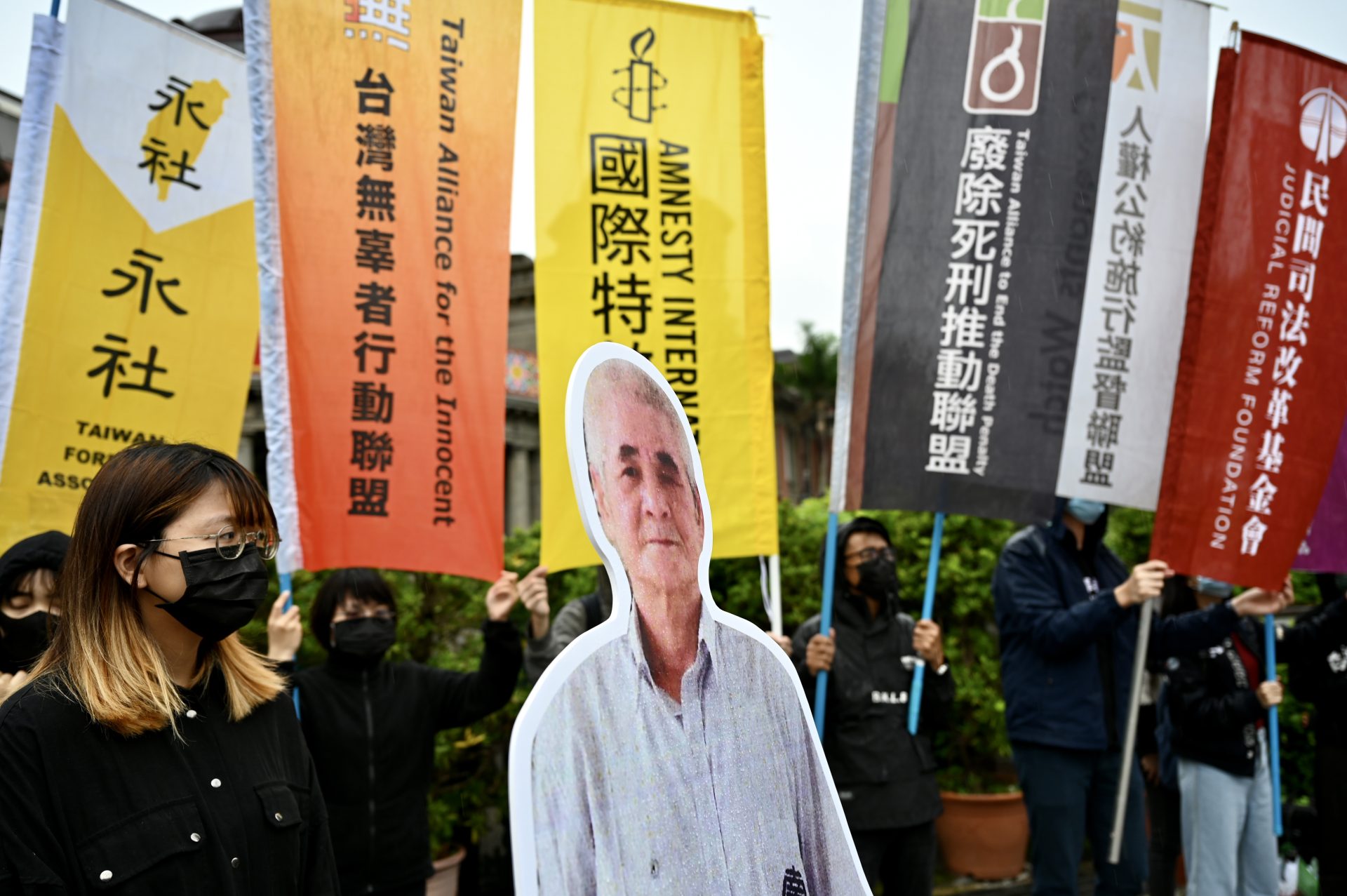Taiwan’s claim to be a regional bastion of human rights is undermined by its retention of capital punishment, activists say as they campaign to exonerate the island’s oldest death row prisoner.
Wang Xin-fu is among 38 inmates in Taiwan awaiting execution, which is carried out by gunshot and without advance notice once all appeals are exhausted.
At 69, Wang is Taiwan’s most elderly prisoner on death row and has consistently maintained his innocence.
Rights groups led by the Taiwan Alliance to End the Death Penalty (TAEDP) have launched a campaign to exonerate Wang, arguing he was wrongfully convicted as a joint offender for the murder of a policeman in 1990.
Wang had been detained in his youth and classified by Taiwan’s then authoritarian government as a “thug”.
He was sentenced to death for supplying a gun to a “lackey” and ordering him to shoot the victim, based on testimonies from the shooter and witnesses.
But activists claim there are “obvious flaws” in the conviction, from inconsistent testimony, allegations of police torture against a witness, a lack of motive and no fingerprints.
“He is a so-called ‘bad guy’ but bad guys also have rights. He should not be sentenced for a crime that’s not his doing,” said Lin Hsin-yi, executive director of TAEDP.
Wang fled to mainland China after learning he was wanted and was only arrested in 2006 upon returning to Taiwan for treatment of an eye ailment.
He was convicted and the supreme court upheld his death sentence in a final ruling in 2011.
Last chance
In November activists appealed to the Control Yuan, Taiwan’s top government watchdog, after the office of the top prosecutor rejected their request to file a “special appeal” for Wang — one of the only ways to challenge a final conviction.
That tactic has previously worked.
In 2018, the Control Yuan recommended the prosecutor-general file a special appeal for death row prisoner Hsieh Chih-hung, who had been jailed for 19 years for murder. That eventually led to his acquittal.
Now a free man, Hsieh campaigns for abolishing the death penalty, saying his and other exonerations show the capital punishment system is fallible.
Campaigners point to one of Taiwan’s most disputed and lengthy cases, when a court in 2012 quashed the convictions of three men sentenced to death over the murder of a couple two decades ago, after they had undergone a string of trials and retrials.
Another high-profile case came the year before when a military court declared that an air force private executed 14 years previously for the rape and murder of a five-year-old girl was innocent.
“The government thinks carrying out executions is the will of the people but does that really solve the problems?” Hsieh told AFP.
Another death row prisoner that activists campaign for is Chiou Ho-shun, who has been incarcerated for more than three decades.
Popular support
Capital punishment remains popular in Taiwan.
Despite its frequent use against dissidents during decades of martial law, most polls show Taiwanese still support the death penalty even as the island has become one of the most progressive democracies in Asia.
Some 35 prisoners have been put to death since 2010 when Taiwan resumed executions after a four-year hiatus, including two since President Tsai Ing-wen took office in 2016.
Activists have criticised Tsai’s government — which has embraced progressive issues such as gay marriage — for continuing with the executions.
Tsai has called abolishing capital punishment “a difficult issue to deal with” due to the lack of support from the public that would require “a long process, a long time” to change.
The justice ministry said it restarted a taskforce in 2017 aimed at facilitating gradual abolition and has been studying alternatives while trying to build a public consensus.
“Abolishing the death penalty is an international trend in recent years and it’s the long-term direction our country has been working on,” the ministry said in a statement to AFP.
Opponents want a moratorium on executions and a timeline for complete abolition.
“If people know there are alternatives they won’t necessarily support the death penalty, especially if they are aware of wrongful convictions,” activist Lin said.
One alternative is lifetime incarceration on condition that the convict work in prison with part of their wages going to the victims’ families as compensation, she added.
All Wang’s family can do is wait.
His sister Wen Mei-hui, 60, said she is hopeful her brother will be reunited with her as a free man.
“I am convinced he’s innocent,” she told AFP. “I hope the authorities will let my brother go home.”







